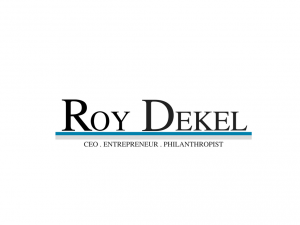In the digital age, certain cities have earned an almost mythic status as the place to start up a startup. The two most famous of these are San Francisco, heart of the “Silicon Valley”, and New York, known as the “Silicon Alley”. The thing is, though, that plenty of entrepreneurs have become so enamored with making it in those cities that they often overlook potentially greater opportunities elsewhere. Here are some great cities around the country for entrepreneurs to start companies that aren’t San Francisco or New York:
Salt Lake City: Also known as the “Silicon Slopes” due to its close access to top-notch skiing, Salt Lake City has been drawing such companies as Adobe and Workday. The city manufactures plenty of hardware, ranging from flash memory chips to headphones.
Baltimore: While “The Wire” painted a less-than-ideal picture of Baltimore, but the city’s been seeing some major growth thanks in no small part to the presence of Johns Hopkins University and Laureate Education, which has turned the city into a mecca for education-based companies. The teachers of Baltimore with diverse student populations, and are therefore more willing to test out new tech ideas in classrooms. These factors have made the city a mecca for education-based tech startups.
Nashville: Long hailed as a center of the music industry, particularly country music, Nashville has been seeing an increase in new industry, particularly in the digital media fields. A large part of this has to do with a growing population of younger college grads.
Kansas City: While Kansas City hasn’t been doing much with tech, it has been part of another major business craze: specialty food. Craft bakeries, breweries, distilleries, candy-makers, and barbecue sauce bottlers have all been experiencing a major boom in Kansas City. Behind this boom have been various food-business incubators that offer food entrepreneurs the connections that their growing businesses require to prosper.
Sacramento: While Sacramento is just a two-hour drive from San Francisco, in regards to culture and image the two cities couldn’t be further apart. But it’s also conveniently located in California’s agricultural heart, making it ideally placed for agriculture and food startups. A large part of this growth is due to the city’s proximity to UC Davis, whose food science program has been increasing rapidly. I told myself I wouldn’t mention San Francisco again, but even they’ve been taking note of Sacramento, with investors pouring in millions.
Detroit: Not without good reason, Detroit has gotten a bad reputation over the years; struggling in the beginning of the 21st century, the 2008 recession hit the city hard, and the future looked grim for the Motor City. But in the past few years, the city of Detroit has been using various incentives to attract entrepreneurs. Many larger businesses have even joined the effort by helping smaller startups succeed by offering a combination of capital, advice, and office space. This has altogether created a collaborative startup scene where everybody is helping each other succeed.
Boston: Thanks to a notoriously high concentration of colleges and universities, Boston is a major center of the sciences, particularly healthcare tech. There are five top-ranked hospitals in downtown Boston alone, and neighboring cities such as Cambridge are home to not only great schools, but also healthcare companies ranging from startups to biggest companies. The state government has been kicking in as well by offering healthcare-specific incubators to help startups grow.
Los Angeles: Thanks to bigger spaces for cheaper rents, LA is a great place to be if you’re in the apparel and textile industries. This has led to a major development of fashion, helped by local schools such as the Fashion Institute of Design and Merchandising.
Pittsburgh: Similar to Detroit, Pittsburgh fell on hard times, yet seems to be well on the way to recovery. The city is going through an economic revival, helped by a low cost of living (roughly 45% less than New York) and various incentives. The city has one of the largest concentrations of nonprofits in the country, and has recently seen a growth in the healthcare, startup, and green industries.

